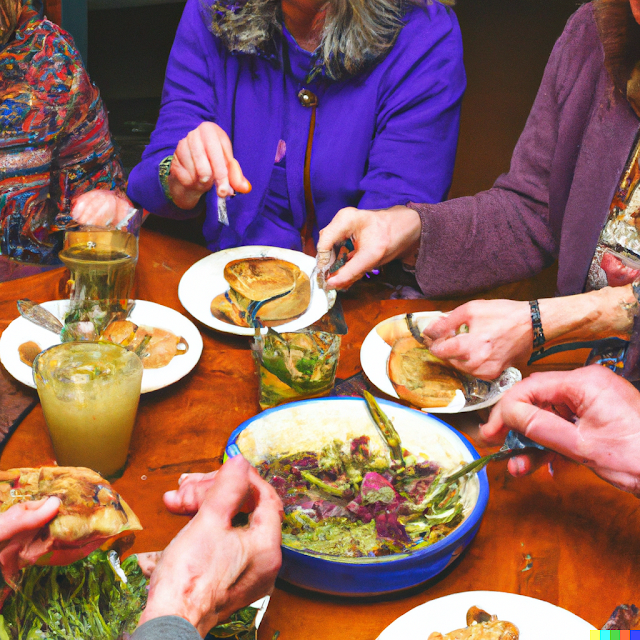Veganism has become an increasingly popular lifestyle choice in recent years, with more and more people choosing to adopt a plant-based diet. From health benefits to ethical considerations, there are numerous reasons why people are turning to veganism. In this comprehensive guide, we will explore the rising trend of veganism, its benefits, and how to make the transition to a plant-based lifestyle.
What is Veganism?
Veganism is a way of life that involves avoiding the consumption of animal products and byproducts, such as meat, dairy, eggs, and honey. Vegans also avoid using products made from animals, such as leather, wool, and silk. The philosophy behind veganism is based on the belief that animals have the right to live free from human exploitation and that a plant-based diet is more ethical and environmentally sustainable.
The Benefits of Veganism
There are numerous benefits to adopting a plant-based diet, both for individuals and for the planet. Here are some of the most significant benefits:
Health Benefits
A vegan diet is rich in nutrients and can help reduce the risk of chronic diseases such as heart disease, cancer, and type 2 diabetes. It is also associated with lower levels of cholesterol, blood pressure, and body mass index (BMI). Plant-based diets are typically lower in saturated fat and higher in fiber and other essential nutrients, which can improve overall health and well-being.
Environmental Benefits
Animal agriculture is a significant contributor to greenhouse gas emissions, deforestation, and water pollution. By avoiding animal products, vegans can reduce their carbon footprint and help protect the environment. A plant-based diet requires fewer resources, such as land and water, and produces less waste, making it a more sustainable option.
Ethical Considerations
Veganism is based on the belief that animals have the right to live free from human exploitation. By avoiding animal products, vegans can help reduce the demand for animal agriculture and promote more ethical treatment of animals. This includes the use of animal products in clothing, cosmetics, and other consumer goods.
Making the Transition to Veganism
Making the transition to a vegan lifestyle can seem overwhelming at first, but it doesn't have to be. Here are some tips to help make the transition easier:
Start Slow
Going vegan overnight can be challenging, so it's important to take it slow. Start by incorporating more plant-based meals into your diet and gradually reducing your consumption of animal products. You can also try meat alternatives, such as tofu or seitan, and experiment with new plant-based recipes.
Educate Yourself
Learning about the benefits of a plant-based diet can help you stay motivated and informed. There are many resources available online and in print, including cookbooks, documentaries, and websites, that can provide information and inspiration.
Connect with the Vegan Community
Connecting with other vegans can be a great way to get support and inspiration. Join local vegan groups or online communities to connect with like-minded individuals. You can also attend vegan events, such as potlucks and meetups, to try new foods and connect with others.
Get Creative in the Kitchen
One of the benefits of a plant-based diet is the opportunity to try new foods and recipes. Experiment with different fruits, vegetables, grains, and legumes to find new favorites. You can also try making your own plant-based versions of your favorite dishes, such as lasagna or mac and cheese.
Veganism is a lifestyle that offers many benefits, both for individuals and for the planet. By adopting a plant-based diet, you can improve your health, reduce your carbon footprint, and promote more ethical treatment of animals. While making the transition to veganism can seem daunting, it doesn't have to be. By starting slow, educating yourself, connecting with the vegan community, and getting creative in the kitchen, you can make the switch to a plant-based lifestyle that works for you.
If you're interested in exploring veganism further, here are some additional resources:
The Vegan Society:
A non-profit organization that promotes veganism and provides resources for those interested in adopting a plant-based lifestyle.Vegan Outreach:
An organization that works to promote veganism and animal rights through outreach and education.
Forks Over Knives:
A documentary that explores the health benefits of a plant-based diet and provides resources for those interested in making the switch.
Oh She Glows:
A popular vegan food blog that provides delicious and healthy plant-based recipes.
Minimalist Baker:
Another popular vegan food blog that provides simple and easy plant-based recipes.
In conclusion, the rising trend of veganism is a positive development for individuals and the planet. By adopting a plant-based lifestyle, we can improve our health, reduce our impact on the environment, and promote more ethical treatment of animals. While making the switch to veganism can seem daunting, taking it slow, educating yourself, connecting with the vegan community, and getting creative in the kitchen can help make the transition easier and more enjoyable.










